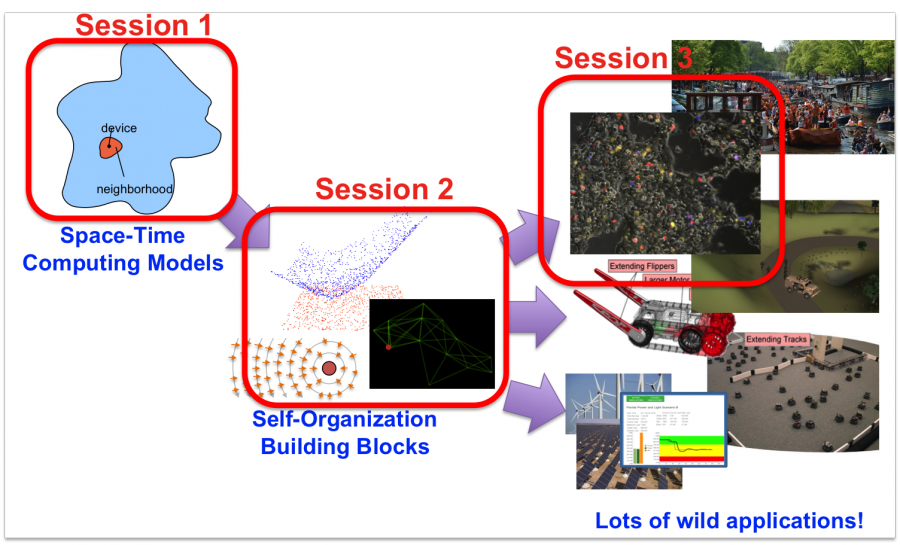CUSO Seminar - Spatial Computing - May 2014

Title: Spatial Computing: From Manifold Geometry to Networking and Biology
Speaker: Dr Jake Beal, BBN Technologies, Ohio University, USA
Description
An increasing number of distributed systems may be viewed as spatial computers---collections of devices distributed to fill a physical space in which the difficulty of moving information between any two devices is strongly dependent on the distance between them. Examples include peer-to-peer wireless networks, engineered biological cells,
wireless sensor networks, robotic swarms and reconfigurable computing platforms (e.g. FPGAs), as well as natural systems like animal swarms and cells during morphogenesis.
Spatial computers pose a major programming and control challenge due to their potential scale and radical decentralization. In this talk, I will present an approach in which we view the network as a discrete approximation of the physical space through which devices are distributed. Using this "amorphous medium" abstraction and a carefully chosen set of space-time primitives, the Proto spatial computing language allows a programmer to express global behaviors in terms of simple geometric computations. These are then automatically transformed into a program that uses local interactions between devices to robustly and scalably approximate the specified global
behavior. I will illustrate this approach with applications in sensor networks, synthetic biology, and morphogenetic engineering.
Organisation of the seminar:
a) General spatial computing & Proto
b) Self-organization building blocks
c) Synthetic biology and the Proto BioCompiler
Each topic will be composed of a lecture and hands-on exercise.
Biography of Speaker:
Dr. Jacob Beal is a scientist at BBN Technologies, a research affiliate of MIT, and a Science Commons Fellow. His research interests center on the engineering of robust adaptive systems, with a focus on problems of modelling and control for spatially-distributed systems like sensor networks, robotic swarms, and natural or engineered biological cells. Dr. Beal completed his Ph.D. in 2007 under Prof. Gerald Jay Sussman at the MIT Computer Science and Artificial Intelligence Laboratory.
News
